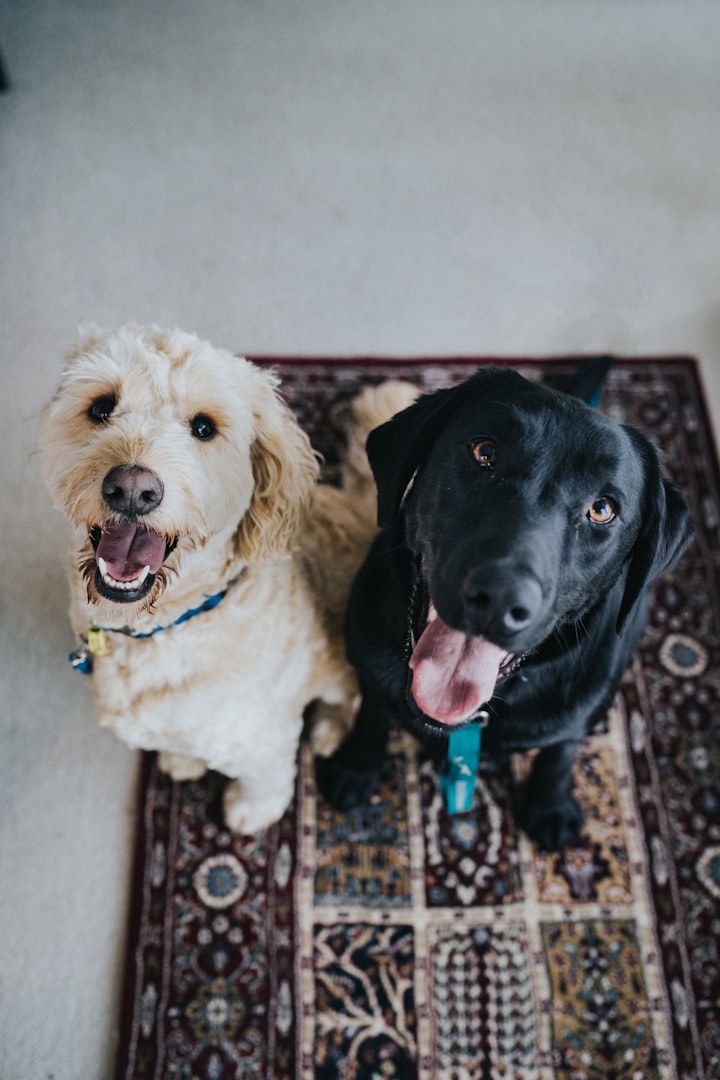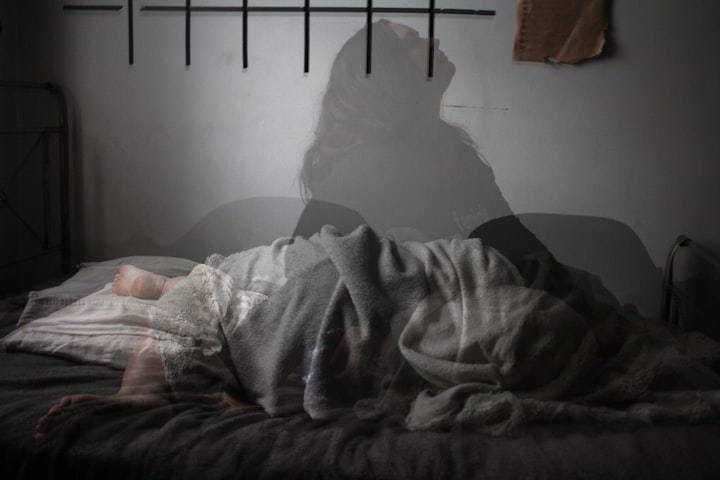Control: The Mental Health Issue
Is there a secret to slowing panic attacks and anxiety?

Much of my own life in the past seven years has been attempts at fighting off panic attacks, anxiety, depressive episodes where I don't eat more than one small meal a day, or some combination of the three. The therapist I used to see said my anxiety probably stems from some issue (or issues) in my past that I tried to resolve, didn't quite get what I needed in full, and learned to cope with it as best I could at the time. Because of this, my brain chemicals don't function properly--or, at least they don't function how other people's brain chemicals function.
So, what did my therapist and I agree I should try years ago? He said to me: "Only try to control what you can control in the moment." Simple, right? However it has done wonders for me. As a person who suffers from depression and anxiety and panic attacks, control is something that I cherish. Let me be clear here, though: I do not cherish, want, hope for, or encourage controlling people. Never will I encourage controlling people. Anyone who thinks they can control another person and bend them to their will needs help. I only try to control what I can control in the moment. Some examples of this include: learning what someone has done and how I react to that situation, accepting what another person does in their life, slowing an anxiety attack, opening up about anxiety.

In regards to learning about what someone has done and how I react to it, some of my own experience comes from romantic relationships and some comes from platonic relationships. Yes, that may sound normal, but in my life I haven't been able to trust many people because the overbearing thoughts in my mind have told me that there's never going to be someone who won't hurt me like I have been hurt. In multiple instances I have been taken advantage of within a relationship for someone's personal gain.
Now, how does that relate to what someone has done and how I react to it? Well, I'll take the last fifteen-sixteen months as an example. I met someone in September 2019 who opened up about being in an abusive relationship within the first couple weeks of us talking. I don't know why she did this, nor do I care any longer. However, at the time, it was something that ate at me. I would get updates from her on how her life was going, and eventually she got out of that relationship. That made me happy--it made me happier than I'd been in months. However, after that, and learning where she moved, our relationship had plenty of ups and downs.
This woman moved from where she was to my hometown, which I thought was pretty cool since I knew the place like the back of my hand and she'd never been in that area before. However, despite us talking about meeting up and going out and doing whatever we wanted to do together at her new place with her eleven pets (yes, seriously, she had eleven pets) we never did. Not once. Months and months passed and she and I would still talk about meeting up and having some kind of enjoyable time together, but it didn't happen.

Then, in June 2020, nine months after I'd first started talking to this person, I learned the most basic aspect I knew of her life was a lie. Having talked to this person almost every day for nine months, sharing with each other where we live, seeing each other, sharing pictures of trips we'd taken during the time we spent talking to each other, I found through a random stroke of technology (or something) that this girl had been lying about her name since day one. Now, sure, I can understand why she wouldn't tell me the truth at the start of our relationship, or whatever you want to call it, but afterward? After she moved to a new town and lost contact with everyone else she'd known but still talked to me? Why not tell me?
I was furious for a few days after finding out. However, I didn't tell her I knew until I calmed down. I remembered what my therapist said: "Only try to control what you can control." I couldn't control whether or not she would tell me her actual name. I couldn't control whether or not she would be honest with me. I couldn't control how she would react to my knowing. However, I could control telling her. So, around five days after I originally found out she hadn't been honest with me about who she was, I sent a picture after finding her online and called her by her actual name. After that, our relationship got better than it had been before I knew her name. However, I still have to look back at that and realize what I did when I did it.
In the time it took for me to tell this girl I knew she'd been keeping something from me (five days) I didn't sleep well, didn't eat well, and was restless. How could I be so naïve to not figure out someone was lying about who they were from the start? How could I trust someone so quickly without getting any solid information about their life from them in the first month? (Sure, that's probably a bit quick nowadays, but still...)
I didn't react in a way that felt normal to me. I tried to control how and when I would let this person know they'd been lying to me and had yet to come forward with the truth. I didn't know how they were going to react to my accusation of them, event though it was true, and that made my anxiety skyrocket. I began to worry about our relationship and if it meant anything or if she was just using me to get out of a horrible situation when we first met. And then, I realized I couldn't control how she acted or what she did regarding me, so why was I trying?

Only control what you can control. The rest will fall into place despite your own actions.
In some instances, opening up about my anxiety actually makes it easier to control my anxiety. In some cases, I have had anxiety attacks around good friends of mine, and in those cases, they've actually known what to do to help when it happens.
There's one moment that sticks with me in regards to friends and family helping me with anxiety attacks. It happened in either late-2018 or early-2019 after I had opened up to two friends of mine about my struggle with anxiety, how I'd been on multiple medications to curb its effects on my mind, and what I usually do to stop them if I can feel I'm losing control and about to experience an anxiety attack.
These two took everything quite well, actually, which hadn't happened in any other experience I'd had before. That was the first sign of something good to come. The second sign was this: I started to have an anxiety attack at 4:30am after not being able to sleep. I was pacing, tapping my legs, shaking when I sat down, and breathing heavily. I went into the living room of the house I was leasing at the time, and they noticed something was wrong. I don't know how they noticed, because few people actually notice when I'm having an anxiety attack unless I explicitly say it, but after they noticed they asked these questions: "What do you need us to do? What can we do to help you?"

I opened up about my anxiety to these two men, and knew I'd lost some sense of control concerning whether or not they'd be two people who would help me, shun me, or accept and forget about my mental health. They decided they were going to help me in a split-second moment on a random night in a house's living room at 4:30am. I couldn't control my own brain, I couldn't control how they were going to react to anything, but what I could control was telling them what was happening. Opening up about what was going on was one of the best decisions of my life. One of those two people is, to this day, one of my closest friends. He knows when to press me and when not to press me about my anxiety. The fact that he asked, "What can we do to help you?" instead of asking "What's wrong?" (because who with anxiety ever knows what's wrong during an anxiety attack?) made me realize that having control over who I open up to about my anxiety is probably something I need to loosen.
I couldn't control the fact that I had an anxiety attack in the early morning hours of that day, but I could control who I told. I chose to tell those two men, and it worked out in a way that was even better than not telling anyone. I gave up control to them when I told them what was happening. It was their turn to ask questions and help me through my predicament as best as possible.
Having control doesn't mean keeping that control. Having control means knowing who to trust with specific information and how much of that information people need to know. Sure, some people may see that as a pathetic way to live, but in keeping some things to yourself, you're not losing the control you have over your own life. You're staying in the driver's seat of your own mind. Having control is a necessity, but learning how and when to assert that control and when you can let it go so others can learn about you and try to help you is even more necessary.
About the Creator
Alex Prange
Hi, I'm Alex. I'm 29 and have a love for reading, writing, and travel. One thing I am open about is my battle with mental health: I suffer from severe anxiety and major depression, and reading has been the escape from my mind for years.






Comments
There are no comments for this story
Be the first to respond and start the conversation.